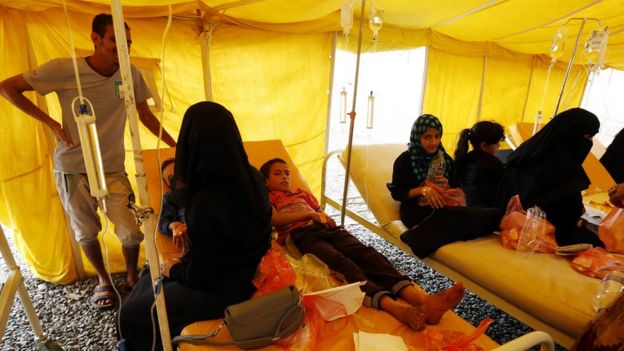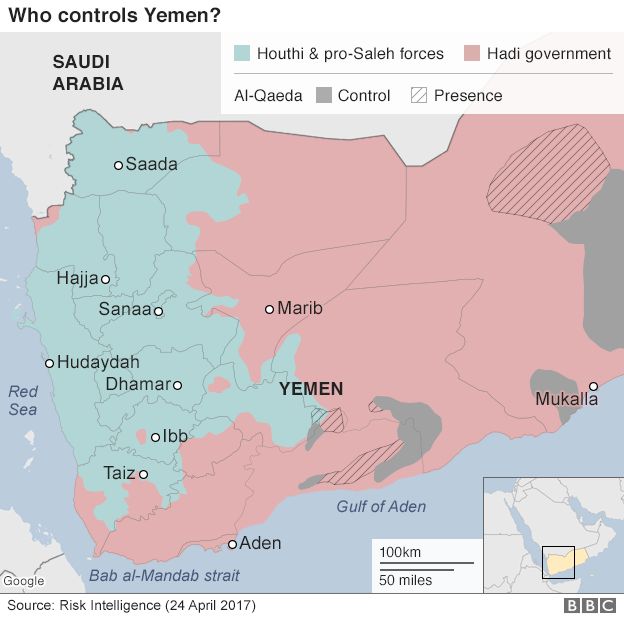A cholera outbreak in war-torn Yemen is thought to have infected 300,000 people in the past 10 weeks, the International Committee of the Red Cross says.
The situation has continued to "spiral out of control", with about 7,000 new cases every day, the ICRC warned.
More than 1,700 associated deaths have been reported, according to the UN.
Yemen's health, water and sanitation systems are collapsing after two years of conflict between pro-government forces and the rebel Houthi movement.
Cholera is an acute diarrhoeal infection caused by ingestion of food or water contaminated with the bacterium Vibrio cholera.
Most of those infected will have no or mild symptoms but, in severe cases, the disease can kill within hours if left untreated.
On 24 June, the World Health Organisation declared that Yemen was facing "the worst cholera outbreak in the world", with more than 200,000 suspected cases.
In just over two weeks, another 100,000 people have been infected - an increase the ICRC's Middle East regional director Roberto Mardini called "disturbing".
 EPA
EPA
The WHO said on Saturday that 297,438 cases had been recorded, but the agency was still analysing the latest figures from the Yemeni health ministry on Monday.
The outbreak has affected all but one of Yemen's 23 provinces. The four most affected provinces - Sanaa, Hudaydah, Hajja and Amran - have reported almost half of the cases.
UN agencies say the outbreak is the direct consequence of the civil war, with 14.5 million people cut off from regular access to clean water and sanitation.
More than half of health facilities are no longer functioning, with almost 300 having been damaged or destroyed, and some 30,000 local health workers who are key to dealing with the outbreak have not been paid for 10 months.
Rising rates of malnutrition have weakened the health of vulnerable people - above all children under the age of 15 and the elderly - and made them more vulnerable to the disease.
Last week, the UN's humanitarian co-ordinator in Yemen warned that humanitarian organisations had been forced to divert resources away from combating malnutrition to deal with the cholera outbreak, raising the risk of a famine.
"If we don't get these resources replaced, then using those resources for cholera will mean that food insecurity will suffer," Jamie McGoldrick said. "We're trying to do our best, but it's very much beyond what we can cope with."

No comments:
Post a Comment